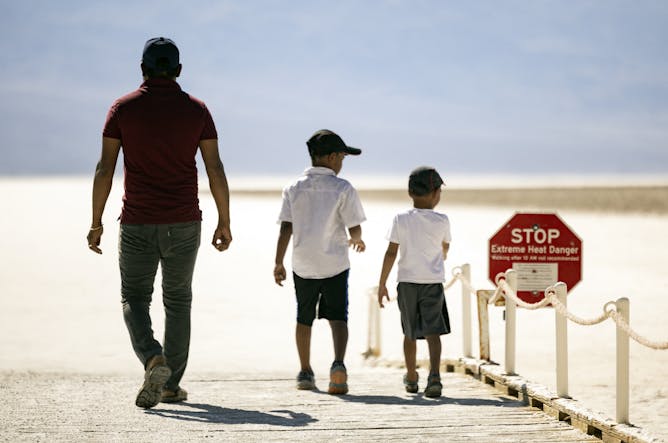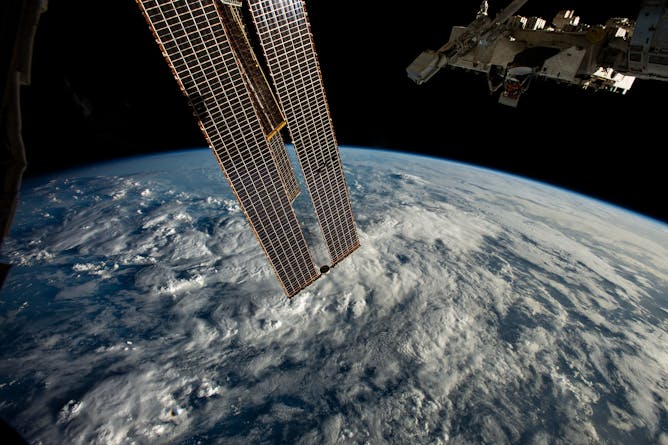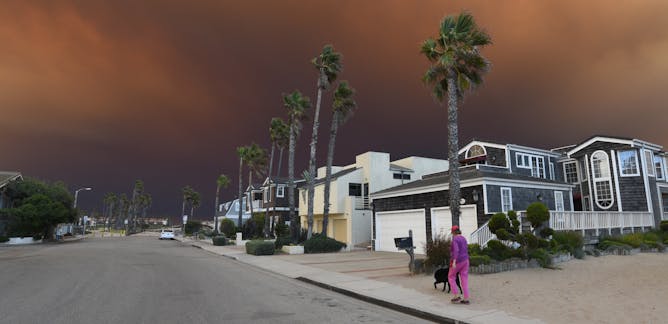|
Almost every day so far this summer, some part of the U.S. has been roasting in brutal and sometimes lethal heat. California’s Central Valley has had highs in the 100s since the beginning of July. Las Vegas hit 120 degrees. In Oregon, where many homes don’t have air conditioning, officials have reported at least seven suspected heat-related deaths in the past few days. The Eastern half of the U.S., which started summer under a heat dome, is in for more scorching heat next week.
Yes, heat waves happen, but the severity and extent of the heat waves striking around the world in 2024 are “not ‘just summer,’” write UMass-Lowell climate scientist Mathew Barlow and meteorologist Jeffrey Basara.
They explain what climate change has to do with Earth’s setting new monthly temperature records every month for the past year – and why exceeding 1.5 degrees Celsius (2.7 Fahrenheit) isn’t the same as breaking the Paris climate agreement. They also take a look at what humanity is doing about it.
Also in this week’s science and tech news:
If there’s a subject you’d like our team of science editors to investigate, please reply to this email.
|

Visitors walk past a sign reading ‘Stop: Extreme Heat Danger’ in Death Valley National Park during a heat wave on July 7, 2024.
Etienne Laurent/AFP via Getty Images
Mathew Barlow, UMass Lowell; Jeffrey Basara, UMass Lowell
Global temperatures have averaged at least 1.5 degrees Celsius warmer than preindustrial times for over a year. Two scientists explain what that means and what humanity can do.
|

Complex space systems like the International Space Station could be vulnerable to hackers.
NASA
Patrick Lin, California Polytechnic State University
Sabotaged space stations, falsified space probe data and faked alien contact are just a few of the scenarios a report on space cybersecurity outlines.
|

Many Americans are not getting the mental health care they need.
SDI Productions/E+ via Getty Images
Bryan Cochran, University of Montana
Knowing which kind of provider to see and how to access help can be half the battle.
|
|
|

David R. Montgomery, University of Washington
Sand may seem abundant when your toes are buried in it, but it’s becoming scarce along many coastlines around the world.
| |

Rachel Connolly, University of California, Los Angeles; Michael Jerrett, University of California, Los Angeles
Breathing wildfire smoke can cut years off people’s lives. As fires become more frequent in a warming world, smoke is leading to a public health crisis.
|

Steven Caplan, USC Annenberg School for Communication and Journalism
Political ad transparency – who’s paying for ads and whether candidates stand behind them – is well-regulated for TV and radio. Online, not so much.
| |

Nicole Granucci, Quinnipiac University
It’s not a competition, but if it were, Saturn would be winning.
|
|
|
|
|
-
Lonni Besançon, Linköping University; Guillaume Cabanac, Institut de Recherche en Informatique de Toulouse
Scholars have long measured the impact of a paper by counting the number of times other scientific articles cite it. Researchers have just detected a new kind of citation fraud.
-
Maggie Ruderman, Boston University; Kimberly Zayhowski, Boston University
Cell-free DNA prenatal screening, sometimes called ‘the gender test,’ cannot determine gender because gender is more than just genes and genitals.
-
Ron Barrett, Macalester College
In the 19th century, many doctors might not have believed germ theory, but they switched to using protective methods anyway for a simple reason.
|
|